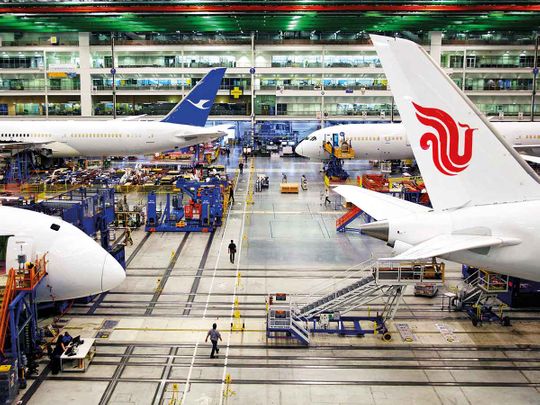
Brussels: Boeing Co.’s ventures with Embraer SA face a deeper antitrust probe from the European Union as regulators said the transaction threatens to knock out an important rival to the world’s biggest plane makers.
The European Commission has until February 20 to issue a ruling on the deal after opening an “in-depth investigation,” according to a statement. Boeing and Embraer, which had already shifted their target for completing the transaction to early 2020 from this year, have said they expected additional scrutiny once the EU’s initial inquiry ended October 4.
A so-called “Phase II” investigation from the EU, one of the world’s toughest merger regulators, often raises risks that companies must sell part of their business to eliminate antitrust concerns. The EU said it was worried the deal would “remove Embraer as the third largest global competitor” to both Boeing and Airbus SE, which “may therefore result in higher prices and less choice”.
The heightened scrutiny puts new pressure on Boeing’s plan to take an 80 per cent stake in a venture controlling Embraer’s commercial aeroplane and services businesses. The move, which would broaden Boeing’s reach into the regional-jet market by giving it access to Embraer’s E-Jet family, is intended to position the two companies to better compete with Airbus, which last year took control of Bombardier Inc’s C Series aircraft — now known as the A220.
While Boeing is paying $4.2 billion for the deal, it may also assume some of Embraer’s debt.
Going head to head
Regulators said they didn’t see any potential rivals from China, Japan or Russia that would be able to replicate Embraer’s competition with Airbus and Boeing within the next five or 10 years. They also flagged concerns that the American aircraft maker and Embraer compete head-to-head for 100-150 seat aircraft, with the Brazilian company a “small but important competitive force” for bigger 100-225 seat aircraft.
“Despite Embraer’s comparatively small-market share it also seems to exert some price constraint on the market leaders Boeing and Airbus even beyond the boundaries of the lower 100-150 seats segment,” the EU said. (Boeing and Embraer are also starting a venture to market the KC-390 military aircraft.)
Troubled times
The probe comes as Boeing enters a crucial month for its CEO and the grounded 737 Max jetliner. Dennis Muilenburg’s future is inextricably tied to that of the plane, which is nearing a key test with the US Federal Aviation Administration seven months after two deadly crashes brought a flying ban.
Boeing has had a long relationship with Embraer and the two companies don’t compete directly for most of their business, with Embraer focusing on regional jets and Boeing on larger aircraft. The exceptions are two product overlaps. Embraer’s largest model, the E2-E195, seats between 132 and 146, according to its website. That makes it a competitor to Boeing’s 737 Max 7, which holds between 138 and 172 passengers. The jet is the smallest member of the Max family and struggled to win orders even before the groundings.










